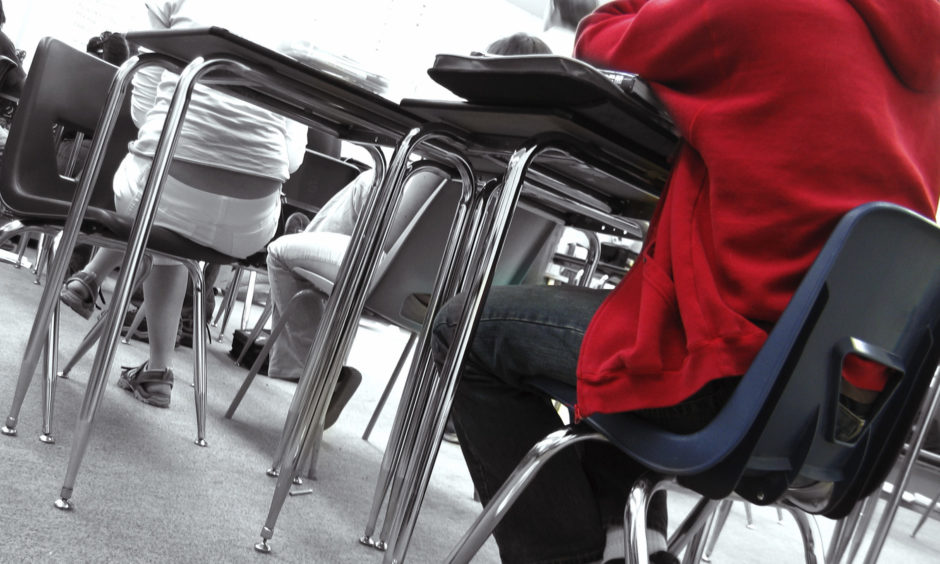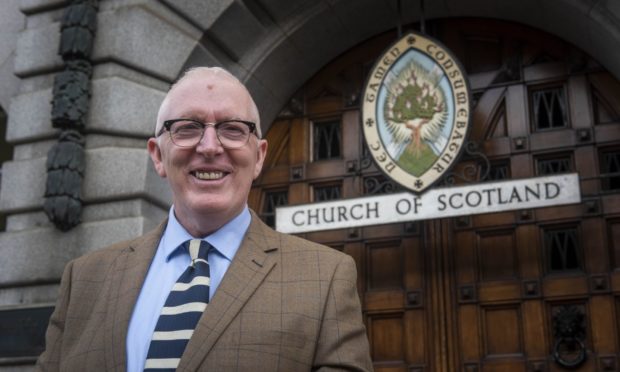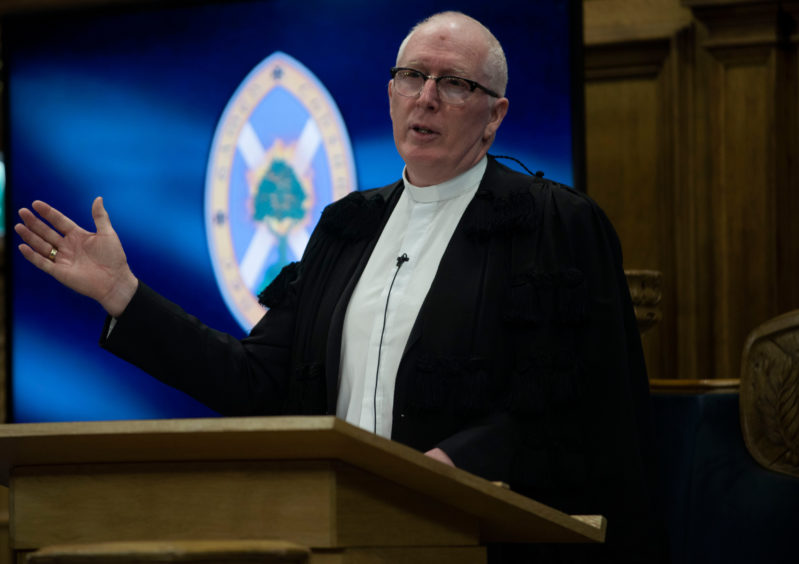The newly installed Moderator of the Church of Scotland, Rt Rev Dr Martin Fair, has a blank diary in front of him. The coronavirus has resulted in all his engagements being cancelled.
Freed from the hectic schedule normally undertaken by the leader of the national church, Dr Fair has time to ponder the future at a time when both the country and the Kirk face testing times.
The pandemic may not quite be of Old Testament plague proportions, but its impact is being felt across the Kirk. Churches have been closed and sermons are being delivered online.
Almost three and a half centuries later, Dr Fair admits the organisation is still grappling with very big challenges as the Church confronts dwindling congregations and the secularisation of society.
But amid the shadow cast by Covid-19, the Moderator has sensed hope since his installation last month. There is a renewed interest in faith and prayer and the crisis has accelerated change in an institution that has tended to be bound by the traditions of the past.
Having struggled to persuade people of its relevance in recent times, Dr Fair believes the Church is rising to the challenge of helping people through the crisis while reinventing the way it reaches out to its communities.
A chance for the Kirk to change
“We are actually positive about the way forward,” said Dr Fair, the minister at St Andrews Parish Church in Arbroath and the first Moderator to come from the Angus town since the Kirk’s foundation in the Scottish Reformation of 1560.
“We see it (the coronavirus crisis) as an opportunity to reinvent ourselves – that is maybe a wee bit strong but we acknowledge that we have needed for some considerable time to make some considerable changes,” he said.
“As with any institution, we are not quick at doing that. Then something like this comes along and it will really force the pace. Somebody put it to me recently that we have come 10 years in 10 weeks and that may be about right.”
Progress has come in the form of using technology to spread the Christian message and by giving practical help during the crisis at foodbanks as well as undertaking tasks like delivering groceries and fetching prescriptions.
What most of our congregations would describe over the last few months is that their contact with folk and with their wider community has grown quite dramatically despite the lockdown and probably because of the lockdown.”
Rt Rev Dr Martin Fair
Dr Fair has witnessed these changes himself. A service he conducted this month has been viewed more than 600 times on the internet.
“That’s considerably more than were ever walking in the door on a Sunday,” the Moderator observed.
“Most congregations have thrived,” he said. “We have engaged with much bigger constituencies online than would walk in the door on a Sunday. A lot more churches are helping out communities by way of foodbanks. I think we have become much less insular and much more outward facing and that’s absolutely where we need to be as we go forward.
“What most of our congregations would describe over the last few months is that their contact with folk and with their wider community has grown quite dramatically despite the lockdown and probably because of the lockdown.”
According to the Moderator, further encouragement can be seen in Google analytics suggesting searches for words like “prayer”, “God” and “Jesus” have “gone through the roof” as people seek spiritual comfort during a time of crisis.
Looking outwards and embracing technology are examples of how the church is tackling what he feels is the Kirk’s greatest challenge – persuading people of its relevance in a modern world.
We have spent the last 14 years running a very effective drugs support services for people with addictions. They are contributing to society now and that’s coming from a place of being absolutely in the gutter.”
Rt Rev Dr Martin Fair
It will be, Dr Fair acknowledges, “a big job” and even he admits the “average person” is likely to think of the Church as “old, out of date and irrelevant”.
“That’s the perception,” he said. “But if you were to come and look at a congregation like mine. We have spent the last 14 years running a very effective drugs support services for people with addictions. They are contributing to society now and that’s coming from a place of being absolutely in the gutter.
“The church has been a major player in establishing foodbanks. If you were to strip out church work among children and young families, toddlers’ groups and so on, there would be a huge gap. The Church of Scotland, after the government, is the biggest supplier of social care in Scotland. If you shut us down tomorrow every single person would notice. I think the church is making a massive contribution right across the country.”
He added: “We are not looking to use the coronavirus pandemic as some kind of underhand way of bolstering ourselves. We are looking at ways to engage the wider community and to serve the nation more effectively.”
An offer to help children back into the classroom
With controversy raging over how children will return to school, the Moderator also believes the Kirk may be able to make another contribution by lending its churches and halls to schools to allow more children to return to lessons.

“There are some discussions ongoing between the Church hierarchy and local government officials about that possibility,” he said.
“One thing we have got is community space right across the country. Given that classroom sizes are going to be affected, we will be ready, I am sure, where it is appropriate to open our buildings more widely and not least for schools’ use if that proves to be possible.”
The burden of Church buildings no longer fit for purpose
But what of the steeples, spires, pews and pulpits themselves, given the church’s recent record of selling off places of worship to cut costs?
“We are very well aware we have got significantly more buildings than we need,” said Dr Fair, signalling the prospect of more churches being put on the market. “Many of our buildings are outdated. They are not fit for purpose for 21st Century ministry, so they become a burden to us. We are going to have to grasp the nettle and acknowledge that some of that pain is going to have to be endured.”
The Moderator’s lockdown task involving 1,000 phone calls
In the meantime, the married father-of-three intends to canvass the views of all Kirk ministers on the best way of making progress by phoning them during the lockdown. It is a task involving 1,000 calls.
There is no doubt it has increased our possibilities for serving people.”
Dr Fair
“I’m just off the phone to a minister in Lewis, he’s telling me every day he is taking prescriptions to people’s houses from the chemists. He is involved in all kinds of practical things. I am hearing that time after time after time. The Church was always involved in some of that, but it has increased. There is no doubt it has increased our possibilities for serving people,” he said.
A remembrance service lamenting those lost in the crisis
And once the pandemic has passed, he is involved with other church leaders in organising a cross-denominational remembrance service for the thousands who have died.
“When the time is right there will be a service,” he said. “There will be an element of thanksgiving not least for our frontline services. But also there’ll be a tone of remembering and lament for all that has been lost.”











